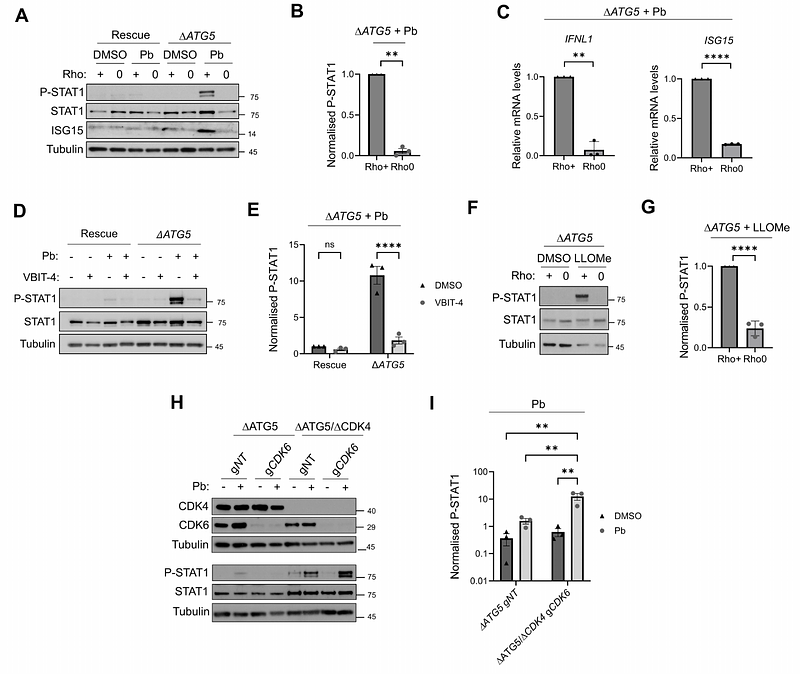Chronic lysosome damage boosts interferon responses to Palbociclib through a mitochondrial signalling axis

Chronic lysosome damage boosts interferon responses to Palbociclib through a mitochondrial signalling axis
Bozic, M.; Lim, T. E.; Kemp, A. J.; Winnington-Ingram, K.; Murphy, L.; Dhir, A.; Wheeler, A.; Jimenez-Moreno, N.; Wilkinson, S.
AbstractAcute lysosome damage triggers the endolysosome damage response (ELDR) in order to co-ordinate vesicle repair or removal by autophagy (lysophagy). However, it is unclear whether persistent damage, as occurs after chronic challenge to lysosome integrity, triggers wider cellular responses. Here, we show that longitudinal treatment with a lysosomotropic cancer therapeutic, the CDK4/6 inhibitor Palbociclib, invokes chronic lysosome damage in breast and lung cancer cells. Autophagy ameliorates but does not avert this phenotype, which persists over days. Damaged lysosomes form contacts with mitochondria, invoking mitochondrial stress and cytosolic efflux of immunostimulatory mitochondrial nucleic acids. Importantly, mitochondrial nucleic acid release is necessary for the anti-cancer interferon response to Palbociclib. In conclusion, chronic lysosome damage rewires cellular signalling responses through the mitochondrion and this effect should be considered when assessing the cellular actions of cancer therapeutics.